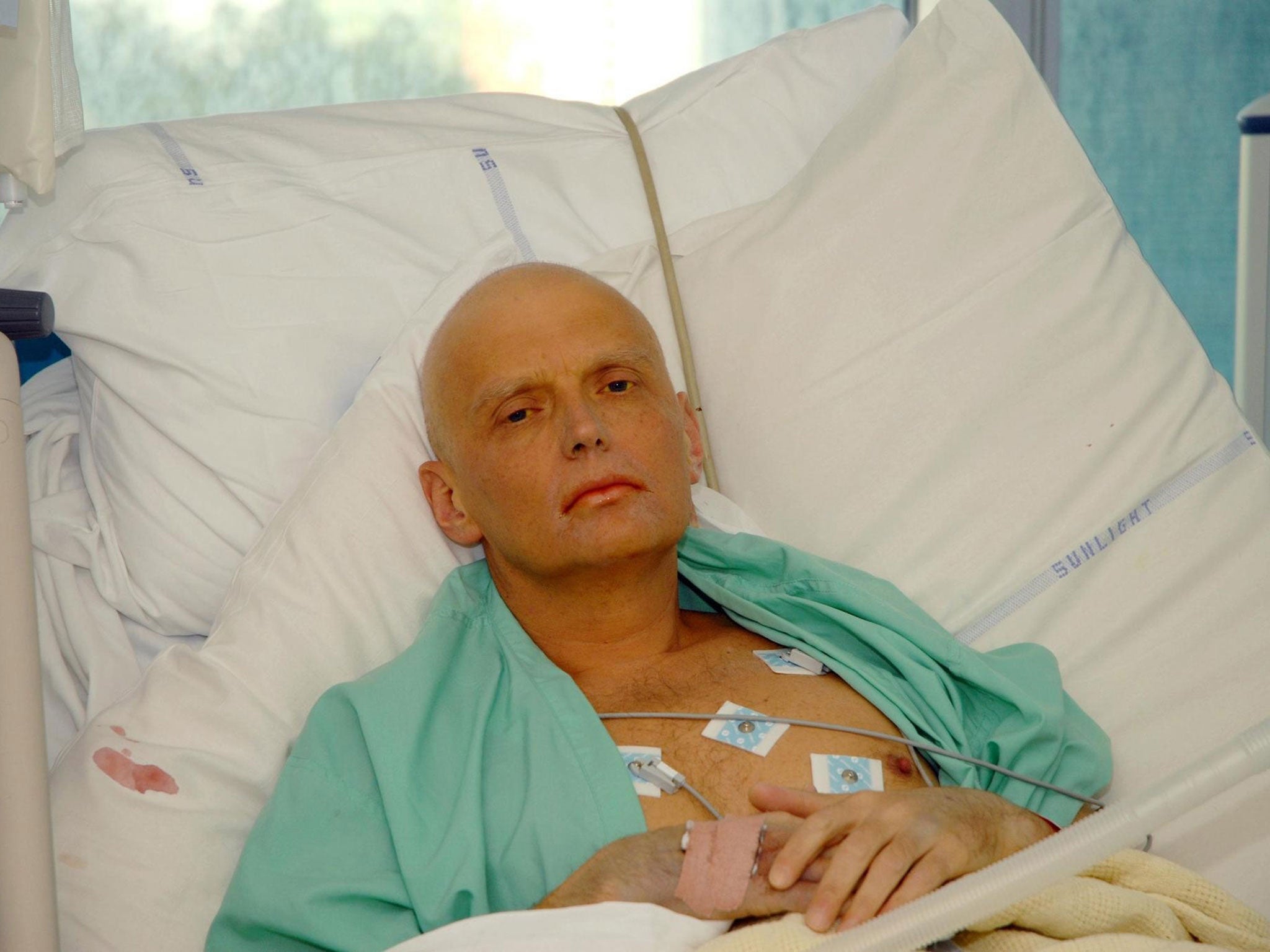Alexander Litvinenko post-mortem was the most dangerous ever conducted
One official’s sole function to check any specks of blood for radiation

The post-mortem examination of the polonium-poisoned body of Alexander Litvinenko was the most dangerous ever conducted, the public inquiry into his death has been told.
Extraordinary safeguards were taken by specialists carrying out the examination because of the hazards. A double layer of protective clothing was needed, with one official’s sole function to check any specks of blood for radiation. Hoods with air filters were worn as breathing in the room would have exposed people to deadly contamination. The use of the lethal isotope on Mr Litvinenko, an exiled former KGB and FSB agent, would not have been uncovered had it not been for a doctor ordering a blood and tissue test, the High Court hearing was told. Even then polonium-210 was only detected by the Atomic Energy Authority at Aldermarston on the morning he died.
The inquiry was told how Mr Litvinenko had been taken to Barnet Hospital vomiting and with blood diarrhoea; he then suffered liver and kidney failures, lost his hair, underwent catastrophic bone-marrow failure and then heart attacks. “Polonium-210 ingestion was the smoking gun in this case,” said Dr Carey.
In a highly charged opening to the inquiry Vladimir Putin had been accused of ordering the assassination of Mr Litvinenko who, it is claimed, was about to expose the Russian President’s “intimate links” with organised crime.
The Crown Prosecution Service had tried, and failed, to extradite Andrei Lugovoi, also a former FSB officer, and Dmitry Kovtun, who was in the Russian military, from Russia to face charges over Mr Litvinenko’s death.
Detective Inspector Craig Mascall, of Scotland Yard’s Counter-Terrorism Command, told the hearing: “There are still two people wanted for the murder, and that’s Mr Lugovoi and Mr Kovtun.” Mr Lugovoi repeated his denial in Moscow of poisoning Mr Litvinenko’s tea and said the inquiry was being held for political reasons following the deterioration of the West’s relations with Russia. The role of MI6 in the death had been suppressed, he said.
